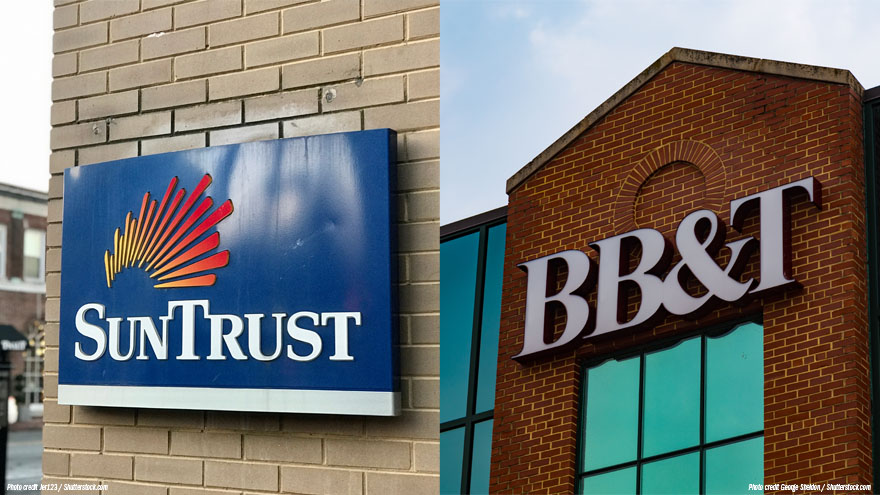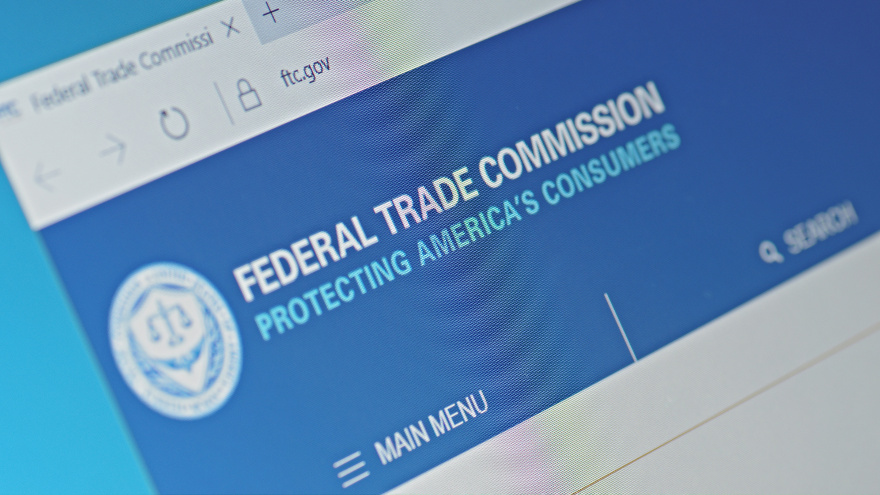An F&I provider that’s been in business for more than 30 years has new ownership.
Kingsway Financial Services on Tuesday announced it has closed on its acquisition of Geminus Holding Co., a specialty, full-service provider of vehicle service contracts and other F&I products to used-vehicle buyers around the country.
Geminus, headquartered in Wilkes-Barre, Pa., has been creating, marketing and administering VSCs and F&I products on high-mileage used vehicles through its subsidiaries — Penn Warranty Corp., and Prime Auto Care — since 1988. Penn and Prime distribute these products via both independent and franchised dealerships.
“As previously communicated, a key component of our business strategy is to actively pursue compelling warranty company acquisitions. We are delighted to add Penn and Prime to our growing portfolio of businesses in the extended warranty industry," Kingsway Financial Services president and chief executive officer John Fitzgerald said in a news release.
“We think very highly of Jude Tuma and the entire Geminus team and feel that, with Kingsway’s resources and support, Penn and Prime have attractive business prospects,” Fitzgerald continued. “We expect the transaction will be immediately accretive to our cash flow and operating income.”
Tuma, who is Geminus’ chief executive officer, added, “We have spent many years building a strong brand and reputation that consumers can depend on. We look forward to joining the Kingsway family as we continue to build our reach and protect our customers’ valued assets.”
Dealerships, especially ones located in the Southeast that have business relationships with SunTrust Banks and BB&T Corp., soon will be working with just one financial institution.
The banks announced on Thursday that both companies’ boards of directors have unanimously approved a definitive agreement to combine in an all-stock merger of equals valued at approximately $66 billion. According to a news release, the combined company will be the sixth-largest U.S. bank based on assets and deposits.
The banks highlighted a new corporate headquarters will be established in Charlotte, N.C., including an innovation and technology center to drive digital transformation. In the current home markets for both companies, the combined company said it will maintain the community banking center in Winston-Salem, N.C., and the wholesale banking center in Atlanta.
“This continued strong presence is also supported by the combined company’s commitment to increase the respective banks’ current levels of community investment,” officials said.
The merger is expected to close in the fourth quarter of 2019, subject to satisfaction of customary closing conditions, including receipt of customary regulatory approvals and approval by the shareholders of each company.
In a reflection of the equal contribution both banks bring to the new institution, officials explained the combined company will operate under a new name and brand, which will be determined prior to closing. The combined company’s board of directors and executive management team will be evenly split between the two institutions.
Kelly King, chairman and chief executive officer of BB&T and its bank subsidiary, will serve as chairman and chief executive officer of the combined company and its bank subsidiary until Sept. 12, 2021, after which time he will serve as executive chairman of both entities until March 12, 2022. King will continue to serve on the board of directors of the combined company until the end of 2023.
William Rogers Jr., chairman and chief executive officer of SunTrust, will serve as president and chief operating officer of the combined company and its bank subsidiary until Sept. 12, 2021, at which time he will become chief executive officer of the combined company and its bank subsidiary. He will also hold a seat on the combined company’s board of directors through his position as president and chief operating officer and then chief executive officer.
On March 12, 2022, Rogers will also become chairman and chief executive officer of the combined company and its bank subsidiary.
Upon the closing of the transaction, the board of directors of the combined company will consist of members equally split between BB&T and SunTrust’s current directors. David Ratcliffe, current lead director of SunTrust, will serve as lead director of the combined company until March 12, 2022, after which the lead director will be a legacy BB&T director.
The combined company’s executive management team will be comprised equally from SunTrust and BB&T. They include chief risk officer Clarke Starnes and chief financial officer Daryl Bible along with:
—Chris Henson
—Allison Dukes
—Brant Standridge
—David Weaver
—Dontá Wilson
—Ellen Fitzsimmons
—Ellen Koebler
—Hugh (Beau) Cummins
—Joseph Thompson
—Scott Case
“This is a true merger of equals, combining the best of both companies to create the premier financial institution of the future,” King said. “It’s an extraordinarily attractive financial proposition that provides the scale needed to compete and win in the rapidly evolving world of financial services. Together with Bill’s leadership and our new SunTrust teammates, we’re going to bring the best of both companies forward to serve our clients and communities.”
Rogers added, “By bringing together these two mission- and purpose-driven institutions, we will accelerate our capacity to invest in transformational technologies for our clients. Our shared culture embraces the disruption of technology and we will take this innovative mindset to expand our leadership in the next chapter of these historic brands.
“With our geographic position, enhanced scale and leading financial profile, these two companies will achieve substantially more for clients, teammates, associates, communities and shareholders than we could alone,” Rogers went on to say. “I have tremendous respect for Kelly, his leadership team and the BB&T associates. We will leverage our respective strengths as we focus together on the future.”
Dealership organizations in two states think services from Dealertrack can help their members streamline operations that happen behind the scenes of vehicle deliveries.
The Louisiana Automobile Dealers Association (LADA) recently announced its exclusive endorsement of Dealertrack Registration and Title Solutions to equip Louisiana dealers with the tools they need to deliver a more accurate and intuitive titling process.
And the Wisconsin Automobile & Truck Dealers Association (WATDA) has given a preferred endorsement to Dealertrack Registration and Title Solutions in an effort to bring a modernized and efficient titling process to Wisconsin dealers.
Building on a 16-year relationship with LADA, officials highlighted this exclusive endorsement with Dealertrack Registration and Title Solutions strengthens and expands its footprint with dealers in Louisiana, where it already connects and supports the majority of the franchised dealer market.
“In our mission to promote the automotive trade across the state, LADA is pleased to give Dealertrack our exclusive endorsement of their registration and titling services which signals to our dealers how great their products and service really are,” LADA president Will Green said.
“Utilizing a more streamlined solution will significantly improve the accuracy and speed of motor vehicle purchases for both dealerships and customers, as well as ensure greater compliance,” Green continued.
The company explained Dealertrack’s registration and title management tools can empower Louisiana dealers to transform a complex and time-consuming transaction into a seamless experience for consumers. The solution can help create a fast, accurate and compliant process, which minimizes repetitive data entry, offers automated data validation and streamlines payments and accounting.
Furthermore, Dealertrack Registration and Title Solutions can allow dealers to track the progress of each transaction and verify the collection of fees, taxes and trade information.
Working in tandem, LADA and Dealertrack will continue to support dealerships across the state, capitalizing on Dealertrack’s expertise to provide insights into new market trends, industry standards and communicate any changes in DMV state regulation.
In addition, Dealertrack offers dealers registration and title education, helping to ensure full compliance with the Louisiana DMV, as well as facilitating proper disclosures, the collection of state fees and taxes, and the correct processing of all required documentation.
Additionally, with more and more dealers looking to move vehicles quickly, ensure high CSI ratings, and increase customer satisfaction, Dealertrack’s one of a kind tools also help Louisiana dealers expedite the sale of vehicles they take in on trade, reducing the payoff-title release process to as little as 4-6 days, while ensuring title accuracy, along with selling of vehicles to cross boarder state customers, whether these customers are military personnel, snowbird customers or simply traveling to a dealer in Louisiana to get the vehicle of their choice with the inventory on hand.
Dealertrack’s commitment to support LADA helps ensure Louisiana dealers have the tools, products, training and services required to maintain an efficient, hassle-free title and registration process — removing the complexity for all parties involved.
“Registration and titling are the last step in the car buying process and it is critical for that process to run smoothly so that customers have a positive last impression of their interaction with the dealership. Dealertrack strives to create the most efficient registration and titling process in Louisiana and 14 other states so that this final step is simple and seamless for dealers and their customers,” said Kaitlin Gavin, vice president and general manager of Dealertrack Registration and Title Solutions.
“Receiving this exclusive endorsement solidifies our ongoing relationship with the LADA to provide a fast, easy-to-use and comprehensive solution which significantly simplifies the titling and registration process,” Gavin continued.
Meanwhile, Gavin also appreciated the decision made in Wisconsin.
She emphasized this preferred endorsement will enable Dealertrack Registration and Title Solutions to further its footing in Wisconsin as it partners with WATDA to help dealers build confidence in the accuracy and efficiency of taking their registration and titling processes digital.
“Wisconsin auto and truck dealers wanted a registration and title partner with deep expertise to give them a simplified solution, superior service and confidence,” said Bill Sepic, president of WATDA. “Dealertrack fulfills on that ask.”
Dealertrack stressed this endorsement solidifies the company’s commitment to providing industry-leading solutions that ease the titling and registration process. By expanding digital registration and titling in the State, Dealertrack and WATDA will work in tandem to ensure long-term sustainability for dealerships as they look to the future of the industry.
With expertise, user-inspired technology, and superior service and implementation support, Dealertrack Registration and Title Solutions insisted it is uniquely positioned to help Wisconsin dealers turn complex and time-consuming registration and title work into a simple, easy and accurate process while delivering the fast experience that today’s consumer demands.
“Faced with ongoing margin compression and changing customer expectations, dealers are working hard to find new ways to create process efficiencies and protect their bottom line,” Gavin said.
“Receiving this preferred endorsement from WATDA is a momentous honor that recognizes how our best-in-class offering can give Wisconsin dealers that streamlined solution they need to deliver a more simplified process that will help them drive results and meet customer expectations,” Gavin went on to say.
The newest financing data from Edmunds and Kelley Blue Book reinforced how the newly installed chairman of the National Automobile Dealers Association didn’t mince words as the auto industry gathered for annual festivities in San Francisco.
“Affordability is an issue. All of the new technology, safety features and fuel economy add costs. That’s a real concern,” current NADA chair Charlie Gilchrist told fellow dealers and finance company executives who assembled for the closing day of the Vehicle Finance Conference hosted by the American Financial Services Association.
On Friday, Edmunds arrived with information to illustrate just how much of a potential issue affordability is becoming for possible buyers walking into your showroom, scanning online inventory or completing financing applications.
Edmunds reported that tightening credit conditions and rising vehicle prices continued to squeeze consumers in January. Due in part to an evaporation of zero percent financing deals, the average annual percentage rate (APR) on new financed vehicles hit the second highest point in 10 years in January, averaging 6.19 percent.
The newest reading is up from 4.99 percent last January and 4.22 percent five years ago.
Additionally, the average transaction price of a new vehicle is expected to hit a near-record high of $37,150 in January, and zero percent financing offers dropped to their lowest level since 2006.
The analysts at Kelley Blue Book reported similar figures. They indicated the estimated average transaction price for a light vehicle in the United States was $37,149 in January, up 4.2 percent or $1,481 from January of last year.
“Car shoppers who are returning to the market for the first time in a few years could be in for a big shock,” said Jessica Caldwell, Edmunds’ executive director of industry analysis. “Vehicle prices and interest rates are so high right now that consumers are facing the very real possibility of spending thousands of dollars more on a new vehicle than they did last time they purchased a new car.”
And depending on which new model they choose, that sticker and financing shock could be intense.
“There are several factors contributing to strong average transaction prices, which climbed 4 percent year-over-year,” said Tim Fleming, analyst for Kelley Blue Book.
“First, Tesla has approached BMW and Mercedes-Benz U.S. sales numbers in recent months with even stronger transaction prices,” Fleming said. “Also, full-size trucks are more popular than they have been for over a decade, and the new Chevrolet Silverado, GMC Sierra and Ram 1500 pickups helped drive prices up.”
Although Edmunds experts noted that sales in January showed relative strength and the overall impact of the polar vortex across the Midwest was minimal, analysts caution that sales are likely to take a turn through the rest of 2019.
“Although January saw a slight lift, higher fleet sales give the false appearance of a more robust sales month,” Caldwell said. “If the economy starts to slip for any reason, we could see significant repercussions for the overall market.”
Encouraging employment news
At least for now, it appears consumers will need vehicles to get to their employment while gaining income to handle those financing commitments. The trend stems from the U.S. Labor Department’s January Jobs Report also released on Friday.
U.S. Secretary of Labor Alexander Acosta said January’s Job Report demonstrated “the strength of the American economy” as the January Employment Situation report indicated 304,000 jobs were added. Acosta said private sector job creation continued to surge despite the partial government shutdown.
Acosta also noted significant growth in the mining, construction, and transportation and warehousing sectors led the report.
Officials pointed out the unemployment rate ticked up by 0.1 percentage point to 4.0 percent, largely as a result of the temporary lapse in federal government funding. However, January represented the 11th consecutive month that the unemployment rate has been at or below 4.0 percent.
The federal agency went on to mention average hourly earnings rose by 3.2 percent, marking the sixth straight month in which year-over-year hourly earnings have been growing at or above 3 percent. Average weekly earnings rose at an even more robust 3.5 percent year-over-year.
“Another key indicator in the report pointed to the increase of the labor force participation rate to 63.2 percent, the highest rate since August 2013,” Acosta said.
“As the jobs and employment data normalizes over the coming months, we are confident the nation’s economy will continue to build on the strength seen in 2018 and the first report of 2019,” he added.
The latest employment data also impressed Curt Long, who is chief economist at the National Association of Federally-Insured Credit Unions (NAFCU).
“The January jobs report showed no signs that hiring is slowing down,” Long said. “The slight uptick in the unemployment rate owes to the highest rate of labor force participation in over five years.
“Wages growth slowed, which suggests there is still room to run. It also supports the Fed’s patient stance on rates, as inflationary pressures remain muted,” Long added.
Resilient auto industry
Brad Korner, general manager for Cox Automotive Rates and Incentives, described how OEMs didn't lean on a crutch of the past to keep metal rolling over the curb.
"Automakers in January continued a relatively tempered, measured approach to incentives. Our team was tracking fewer programs in the month, notably fewer at Ford, which uncharacteristically held steady and offered fewer-than-normal regional programs," Korner said.
"In January, lease pull-aheads remained popular and there was continued healthy spending on full-size pickups trucks, notably from Ford and GM, who both have money and programs in place on 2019 models to compete with the new RAM model which is offering less incentives due to a high consumer demand," he continued.
"The incentive business is experiencing a transition away from incentive promotion and toward a focus on monthly payments for both finance and lease deals. This is likely to combat the affordability issues and help consumer with budgeting for a new vehicle," Korner went on to say.
"Also, as more digital retailing solutions are offered, consumers are finding more transparency in the deal, with less emphasis on the amount of a rebate or incentive and more emphasis on the resulting monthly payment," he added.
No matter what headwinds might appear in terms of elements like affordability — especially if the Federal Reserve continues to adjust interest rates — Gilchrist is confident dealerships will still be turning used and new metal throughout the year. Along with being NADA chair, he is also president of Gilchrist Automotive, which includes Buick-Chevrolet-GMC, Chrysler-Dodge-Jeep-Ram, Ford, Nissan and Volkswagen franchises at five Texas dealership locations in the Dallas-Fort Worth area.
“We respond well to our local markets,” Gilchrist told the auto finance community during AFSA’s event. “This is a fun business, but it’s an intense business. We have to smile every day and keep our attitude right.”
New-Car Finance Data
|
|
January 2019
|
January 2018
|
January 2014
|
|
Term
|
69.1
|
69.2
|
65.9
|
|
Monthly Payment
|
$551
|
$524
|
$476
|
|
Amount Financed
|
$31,707
|
$31,236
|
$27,573
|
|
APR
|
6.19
|
4.99
|
4.22
|
|
Down Payment
|
$4,191
|
$3,914
|
$3,628
|
Used-Car Finance Data
|
|
January 2019
|
January 2018
|
January 2014
|
|
Term
|
67.2
|
66.9
|
64.4
|
|
Monthly Payment
|
$407
|
$384
|
$363
|
|
Amount Financed
|
$21,763
|
$21,084
|
$19,441
|
|
APR
|
8.88
|
7.83
|
7.58
|
|
Down Payment
|
$2,614
|
$2,473
|
$2,200
|
Source: Edmunds
Interest rates continue to increase the cost of buying a vehicle. Dealers and finance companies are well aware of concerns about affordability, consumer access to credit and softening new-vehicle sales.
Because of that, dealers and finance companies are exploring new methods to make the auto financing process more efficient to save time and money. Working to help ease concerns with that process, DealerTrack notes that the payoff and title release process is a main area in which money might slip through the cracks.
The company highlighted that its Accelerated Title product can provide the ability to reduce payoff and title release from what it says is an industry standard of 12 to 18 or more days to as few as four to six days.
Finance companies spend approximately $20 to $25 per title released on back of the title lifecycle labor costs such as overnight postage, short-pay write-offs and over-pay refunds, according to DealerTrack data. All of those costs mean a finance company that releases 40,000 annual titles incurs almost $1 million in costs. The company says outdated tools, manual procedures and slow workflows are the reason for those costs. How can lenders and dealers overcome those costs? By working closely with their third-party technology providers to build partnerships, make more of their processes digital and make workflows connect better for greater accuracy and speed.
Obtaining a payoff quote, handwriting and mailing checks overnight, and then waiting for delivery of title is a time-intensive process. The undesirable result? It can often mean incorrect payoffs, delays in title receipt and high processing costs. DealerTrack notes that its Accelerated Title product can effectively speed up the funding “lifecycle” by as much as 70 percent.
“There is a lot of value to be gained by improving vehicle payoff and title release process,” Cheryl Miller, senior vice president and general manager for Dealertrack F&I and Registration and Titling Solutions, said in a news release. “Through Dealertrack Accelerated Title, we’re working to cut inefficiencies and deliver an integrated workflow between dealer and lender that increases transparency and consistency for a faster, streamlined title release process.”
Dealertrack notes that Accelerated Title is one of its lender products that help lenders improve efficiency while strengthening dealer relationships. Accelerated Title features more than 40 lenders, which the company notes gives dealers more control over their transactions.
Dealertrack states that the fully electronic process can provide finance companies with title tracking and reporting 24 hours per day, seven days a week.
Lyft and Uber drivers not only might have a path to generate funds for a down payment when acquiring a vehicle at certain dealerships, they also could take advantage of a solution to help their credit situation.
DriveItAway, a company concentrating on dealer-focused shared mobility, announced on Wednesday that it is partnering with Get Credit Healthy to pilot what the operations say is the first “no strings” free national credit repair/rehabilitation service for Lyft and Uber drivers.
The companies explained this opportunity to rebuild personal credit is free to all drivers in a dealer-supplied vehicle on the DriveItAway Car Sharing platform, with no obligation to use any particular vehicle, dealership provider, or any vehicle purchase commitment.
After a week in good standing, all drivers on the DriveItAway dealer Car Sharing platform can receive a free invitation to utilize Get Credit Healthy’s credit rehabilitation service, which has been seamlessly integrated into the DriveItAway driver app. The service remains free, as long as the driver remains a DriveItAway customer.
On the dealer side, DriveItaway has integrated Get Credit Healthy’s leading fintech platform, to provide its dealer partners with data intelligence and sales lead recovery that turns credit “fall out” into funded vehicle loans and sales.
Chief executive officer John Possumato insisted this life-improvement service is a true differentiator and fits right in line with DriveItAway’s mission to put all of its clients on a “path to ownership.” Possumato explained all ride share drivers will be able to access it right from the platform, free of charge, and it will help all dealers facilitate a vehicle sale to all those drivers who are looking to buy.
“This is an industry first, in that this type of service has not yet been offered in this “no strings” way. Partnering with a company like Get Credit Healthy in order to offer the best comprehensive credit remediation program for our longer-term drivers is a natural step for us,” Possumato said.
“This fits perfectly with exclusively car dealer clients who provide temporary vehicles for Lyft and Uber drivers,” he continued. “It is fully compliant, as there is no obligation for a renter-recipient to buy a vehicle from any specific car dealer, nor is there any obligation to buy a vehicle at all.
“Our goal is to make it a win for all and, with the ‘on-demand’ employment ride sharing provides, improve lives by making it easy for everyone to increase income and improve credit,” Possumato went on to say.
Get Credit Healthy CEO Elizabeth Karwowski elaborated about why her company chose to align with DriveItAway.
“Get Credit Healthy’s traditional partners have been financial institutions, mortgage companies, and municipalities,” Karwowski said. “The common mission of our two companies is to provide our clients with the means to improve their financial lives and provide them with the necessary tools and education to help them sustain those improvements.
At Get Credit Healthy, we are passionate about providing consumers with the tools and resources they need to eliminate debt, build credit and make sound financial decisions,” she continued.
“That’s why we are delighted to be launching this new program with DriveItAway, and to make this life improvement option available for the first time to members of the new ‘gig economy’ in shared mobility,” Karwowski added.
For more information, all current or potential drivers interested in the program are encouraged to visit this website.
DriveItAway will be introducing this new feature to its turn-key car sharing for ride sharing program for dealers at the National Automobile Dealers Convention this week in San Francisco.
To learn more or to set up a private meeting to talk about the benefits of implementing mobility as a service at your store, visit www.driveitaway.com/nada2019.
GWC Warranty is opening 2019 with a reinforced staff to highlight its used-vehicle service contracts sold through dealers.
The company recently announced the addition of Andrew Huber as its new product strategy manager.
As a member of the marketing department, Huber will be responsible for managing GWC’s suite of products while evaluating new opportunities for innovative product enhancements, all in an effort to ensure GWC Warranty’s products are effectively meeting the needs of its automotive industry partners.
Prior to joining GWC Warranty, Huber held several progressive positions in product management with companies such as The Home Depot, Harland Clarke and Georgia’s Own Credit Union.
GWC Warranty caps year of charitable giving
In other company news, GWC Warranty recently completed a year of charitable activities in support of local causes in northeastern Pennsylvania.
Charitable donations and activities in 2019 included:
• A Relay For Life team sponsorship in support of the American Cancer Society
• Lead sponsorship for the Wilkes-Barre/Scranton Penguins Goal In One Golf Tournament, which supports the Penguins GOALS Foundation
• Sponsor for the Commission on Economic Opportunity (CEO) Food 4 Kids program, which provides lunches to underprivileged children during the summer months
• A donation of more than 200 pet items as part of a Cutest Pet Competition in support of the SPCA of Luzerne County
• Sponsorship and participation as part of the local SPCA Walk For The Animals
• Monetary donations from employees resulting from a “Pink Out Day” shirt sale benefitting the Foundation For Cancer Care
• Volunteering and a donation of more than 400 food items during the CEO Weinberg Food Bank’s Thanksgiving project
• Monetary and toy donations as part of the VFW Post No. 396 toy drive
• 40 local children were provided with Christmas gifts thanks to employees who partook in the Salvation Army Angel Tree Program
“Two of GWC Warranty’s core values are Fair and Friendly, and it warms our hearts to see our employees live these honorable traits out in our communities,” said Jeanette Bogdon, vice president of human resources for GWC Warranty and APCO Holdings.
“We are proud to call northeastern Pennsylvania home and these charitable activities throughout the year serve as our way of giving back and showing our appreciation to the communities in which we live and work,” Bogdon went on to say.
According to the newest update from the Federal Trade Commission, checks literally are in the mail for customers of a California dealer group that settled with the regulator last year.
The FTC said it is mailing 43,456 checks totaling more than $3.5 million to consumers subjected to deceptive and unfair sales and financing tactics by the Sage Auto Group and its owners between 2014 and 2016. Officials indicated affected consumers will receive their checks soon with the average refund amount totaling $81.76.
In September 2016, the FTC charged nine Los Angeles-area dealerships and their owners with using a wide range of deceptive and unfair sales and financing practices. The FTC’s action, filed in the U.S. District Court for the Central District of California, sought to end these practices and return money to consumers.
The regulator explained the action against the Sage Auto Group defendants was the FTC’s first to charge a dealer for “yo-yo” financing tactics: using deception or other unlawful pressure tactics to coerce consumers who have signed contracts into later accepting a different deal.
The FTC also alleged that the defendants packed extra, unauthorized charges for “add-ons,” or aftermarket products and services, into contracts financed for consumers.
In addition to barring the allegedly illegal conduct, the March 2017 order settling the FTC’s charges required the defendants to pay approximately $3.6 million for return to affected consumers.
The FTC added recipients should deposit or cash checks within 60 days, as indicated on the check.
“The FTC never requires consumers to pay money or provide account information to cash a refund check,” officials said, noting that impacted consumers will receive a percentage of their total add-on costs for vehicles they bought.
With less than a month remaining in the calendar year, tax matters are top of mind at the National Automobile Dealers Association.
NADA recapped that the IRS recently proposed a rule on the additional first year depreciation deduction provision that was included in the Tax Cuts and Jobs Act of 2017 (TCJA). In responsive comments that were prepared on NADA’s behalf by Crowe, NADA explained that the association raised several issues requiring clarification.
NADA also urged the IRS to allow dealers whose combined floor plan and business interest is under the 30 percent cap to take advantage of the bonus depreciation provisions provided in the TCJA.
Those complete assertions are available here.
Crowe further emphasized these points on NADA’s behalf in oral testimony that was presented to the IRS just after Thanksgiving. That testimony is available here.
AGORA Data is responding to the need for accurate information involving seasoned vehicle installment contracts.
On Monday, the secondary loan marketplace announced what that company believes is the release of the first-ever loan validation report for seasoned loans. AGORA’s proprietary technology can enable dealer and finance companies to avoid compliance issues with the Truth in Lending Act (Regulation Z), by assessing in real-time any issues with the terms of a loan, either at the portfolio or individual loan level.
AGORA indicated this analysis can include assessment of the contact’s annual percentage rate, finance charges, principal balance, total of payments, unearned interest and gross balance.
AGORA chief executive officer Steve Burke cautioned that violation of Regulation Z can lead to significant penalties and other legal issues.
“Before starting AGORA, I bought as principal, billions of dollars worth of notes from dealers, finance companies, banks and credit unions, and I cannot remember a loan portfolio that did not have problems we identified at the time of purchase,” Burke said.
“When loans are originated and boarded into a servicing system, they are most likely compliant, however, over time, payments get misapplied, side notes are created, late charges are misapplied and many more things that will take what was a compliant loan and make it no longer compliant,” he continued.
The new validation report by AGORA gives you the tools to recognize this real-time,” Burke went on to say.
Before AGORA, Burke insisted that dealers and finance companies would only find out they have a loan level compliance issue if a regulator, buyer or plaintiff attorney identified the problem. By that point, Burke pointed out the dealer or finance company is at risk of losing money, tarnishing their reputation and potentially facing serious legal ramifications.
“By ensuring ongoing compliance with the Truth in Lending Act (Regulation Z), AGORA is keeping you safe,” the company added.
Today AGORA is providing this loan validation tool for free, with no obligation, as well as loan stratifications, data security, data integrity, DMS API integrations, cash flow analysis and much more.
To take advantage of these tools, visit AGORA at www.agoradata.com and sign up for a free account.












